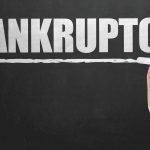Should You File for Chapter 13 Bankruptcy?
For over 25 years, Richard S. Feinsilver, Esq, a reputable bankruptcy lawyer, has been helping clients throughout Long Island’s Nassau and Suffolk Counties, as well as Queens, take control of their finances and improve their monetary situations. If you’re considering filing for Chapter 7 bankruptcy or Chapter 13 bankruptcy, you can count on the guidance of Mr. Feinsilver. His extensive experience and commitment to excellence, coupled with personalized attention to detail, are what set him apart from any other bankruptcy attorney in the area. With the representation of Richard S. Feinsilver, Esq, you can have confidence knowing that your finances will be directed back on the right track.
After searching “bankruptcy attorney near me” countless times and doing extensive research, you’ve found someone whom you would like to work with. When filing bankruptcy, one of the first things you and your attorney will discuss is which plan you should choose: Chapter 7 or Chapter 13. Many people opt for the former, as it fully wipes out any qualifying debts; however, for some, the latter may be a better option.
Could Chapter 13 bankruptcy be the right choice for you? Read on to learn more about this bankruptcy plan to determine if it’s the right choice for you.
Chapter 13 Bankruptcy Explained
Chapter 13 bankruptcy, also referred to as the wage earner’s plan, allows consumers to repay their debts. Together with your attorney, you will devise a plan to pay creditors all or some of the money that you owe them. These payments will be made in installments over a period of 3 to 5 years. Once your proposal is accepted, you will automatically be granted a stay, which legally prevents creditors from contacting you in an attempt to collect.
Benefits of Chapter 13
There are a number of reasons why consumers can benefit from Chapter 13 over the total liquidation of Chapter 7. Some of the advantages include:
- You can retain your property. Perhaps the most notable benefit of the wage earner’s plan is that it can help debtors avoid foreclosure. Typically, lenders require borrowers to pay delinquent mortgage payments in-full; if they don’t, foreclosure proceedings will commence. If you are struggling financially and have amassed several late payments, paying the full amount probably isn’t possible. Through Chapter 13, you can establish a plan to repay your past-due payments, thus, you will be able to avoid foreclosure. You will be required to make the agreed upon monthly payments over the life of your wage earner’s plan, which will bring your payments current The same scenario can be applied toward car loans. This option is not possible under the Chapter 7 plan, as it does not permit consumers to make up delinquent payments.
- Flexibility for unsecured debt. Under this plan, repayments for any unsecured debts are more flexible. For example, if you have any outstanding balances on your credit cards, they may be reduced under Chapter 13, and once the plan is complete, any balances that remain may be forgiven.
- Manageability.The Chapter 13 plan is similar to a debt consolidation loan in that all of your debts are managed by a trustee. You will make a single payment, which will encompass all of the money you owe, to the trustee, who will then distribute the money accordingly. Many people find that it’s easier to manage a single payment than it is to juggle multiple payments.
- Protection from creditors. As soon as your Chapter 13 plan is accepted, you will be granted an automatic stay. This stay prevents creditors from contacting you over the period of your bankruptcy plan. Furthermore, you will not have to contact creditors to make payments, as your trustee will handle them for you.
Eligibility Requirements
Only individuals may file for the Chapter 13 plan; businesses cannot. In order for consumers to apply for this bankruptcy plan, they must meet specific eligibility requirements. You will be eligible for this plan if:
- You are employed, your income is stable, and it’s enough to cover the monthly payment that has been proposed over the duration of the plan.
- Your income tax filings are current.
- Your debts are within the limitations
You will need to submit official paperwork to verify that you meet these eligibility requirements. If you do, then you will be considered eligible and as long as the proposed plan is accepted, you can proceed with your repaying your debts.
In Chapter 13 the Right Option for You?
If you are interested in filing for bankruptcy but aren’t sure if Chapter 13 is the better option for you, contact Richard S. Feinstein, Esq. With more than two decades of experience, he will help you weigh your options and make the best decision for your financial future. To schedule a consultation, call 516.873.6330 today!
- Learn more about North Wantagh, NY 11793 11783
- Open a North Wantagh, NY map
- Find the North Wantagh, NY United States Post Office
- Locate nearby North Wantagh, NY pharmacies
- View the current North Wantagh, NY weather report
- Browse a list of North Wantagh, NY public and private schools
- North Wantagh, NY is located in Nassau county in New York State

